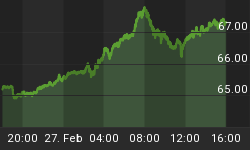You don’t have to be rich to be happy, a new study shows--you just need to be richer than your friends and acquaintances.
People are happy with their lives, scientists ascertained from the study, just as long as they have more money than the people around them.
The study, published in Personality and Social Psychology Bulletin and conducted by the University of Warwick, took 160,000 observations across 24 countries to see if income rank matters more to one’s well-being in unequal countries.
But the findings show that absolute income has little to no effect on happiness.
However, it does show a strong correlation between happiness—which the study more specifically describes as “positive daily emotional experiences”—and the ranked position of an individual’s income.
So, more important than whether you make $32K or $320K, is whether you rank 32nd among your peers as opposed to 320th, in terms of that absolute income.
In other words, people are happy or not happy depending on where they fall on the income scale relative to their peers.
But this study also shows that this is truer in “unequal countries”. That means that in a society with significant income inequality, individuals are more prone to happiness the higher their rank on the income scale.
For particularly unequal countries such as South Africa, Namibia, and Botswana, income rank is pretty important. Related: Are Bonds In A Bubble?
In countries where there is not so much income disparity, such as in Slovenia, Iceland, and Ukraine, the ranking ceases to equate to happiness—at least not to the same degree. The logic of this is sound if not unimportant: rank becomes quite meaningless altogether—aside from not being tied to happiness—when there is essentially no difference between the ranks.
Other studies on the subject of money and happiness have also shown a strong link between the two.
One such study actually tied happiness to the wealth of a nation, rather than an individual. Related: Are Investors Being Lulled Into A False Sense Of Security?
Another larger study from Purdue in 2018 determined that there was a link between absolute income and happiness, but that the income had a threshold for maximum happiness-making. For this study, researchers actually quantified at what point money ceases to increase your level of happiness.
That studied determined that people who make between $60,000 and $75,000 are likely to be happy, at least day to day. For individuals making $95,000, however, they are more apt to be happy with life as a whole. But beyond that level, happiness actually decreases the more money an individual has, the study showed.
So one-upping your friends may be key to finding your inner happiness. If you don’t have more money than your friends, other studies have suggested alternative happiness-finding strategies that run contrary to traditional wisdom. These include renting a home instead of buying one and working at least until age 65.
By Julianne Geiger for SafeHaven.com
More Top Reads From Safehaven.com:
















